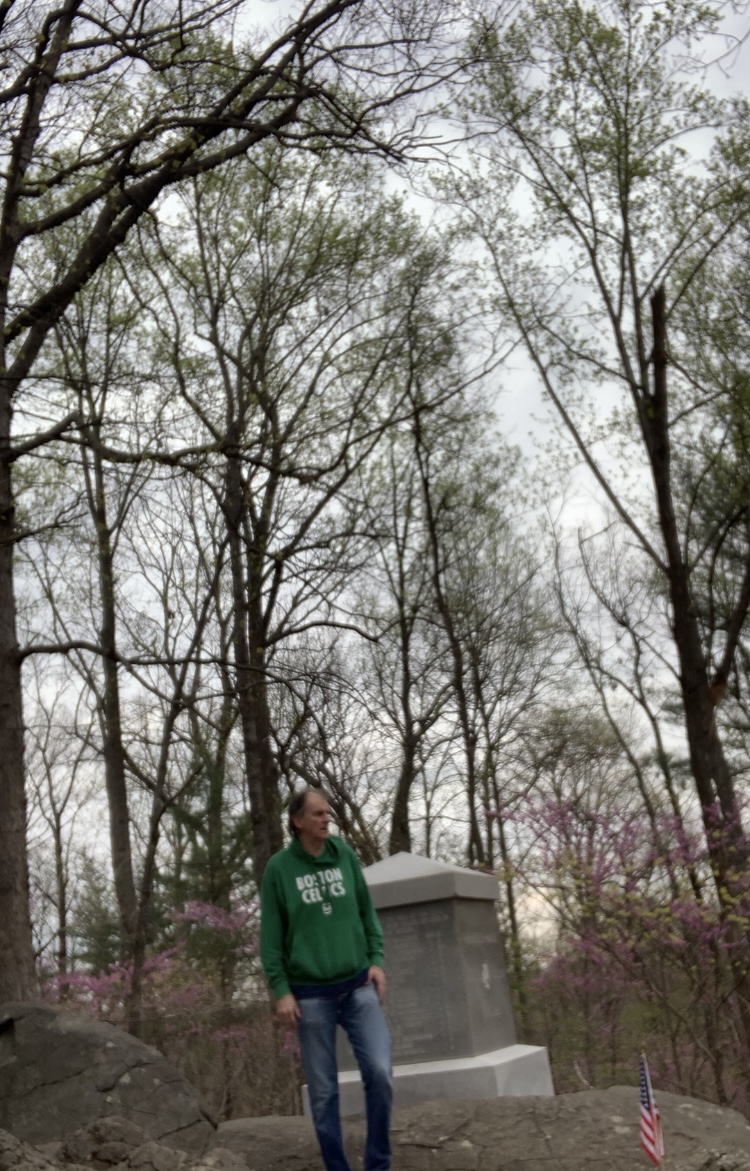One of my lifelong heroes is Joshua Lawrence Chamberlain. He was the Maine school teacher who volunteered to fight in the Civil War and found himself leading the 20th Maine on Little Round Top, a rocky hill at the end of the Union line at Gettysburg. After repulsing several attacks, his battle weary men were out of ammunition and facing yet another Southern charge up the wooded slope. Chamberlain ordered his men to fix bayonets and charge down the hill in a sweeping movement. This resulted in a stunning rout, and the Union held the position. Had they been flanked, the battle and the war might well have gone the other way and what we know as the United States may have ended up as two separate countries.
Chamberlain, who was wounded in battle six times during the course of the war, was chosen by Ulysses S. Grant to accept the Southern surrender at Appomattox. There as Chamberlain watched what was left of the Southern Army coming down the road, heads bowed in defeat, he ordered his men to “Carry Arms!” standing at attention in salute of their old adversary. Chamberlain, who had faced these men on many battlefields, recognized their common humanity. The Southern General, stunned by Chamberlain’s gesture, wheeled on his horse and raised his sword, ordering his men to attention. Chamberlain later described it as “Honor answering honor.”
Chamberlain went on to become President of Bowdoin College and Governor of Maine, before dying of his war wounds at 83. A southern general said of him in admiration, that he had “the soul of a lion and the heart of a woman.“
I first learned of his story through the novel, The Killer Angels by Michael Shaara, which was later turned into the movie Gettysburg, filmed on location at the historic battlefield. I later learned more about him through reading his biography Soul of the Lion, The Passing of the Armies, his account of the closing days of the war, and another book about the history of his regiment, The 20th Maine.
My daughter played in a basketball tournament last weekend in Pennsylvania. She played two games Friday night, and since her first game Saturday wasn’t until the afternoon, I rose early and drove in the darkness to Gettysburg, an hour and half to the west. When I arrived shortly after the sun had risen, I was the only one on the battlefield. I stood where Chamberlain’s commanding officer General Warren stood and surveyed the battleground from Little Round top, and then I walked the woods where the men of the 20th Maine swooped down on the charging Southerners and where so much blood was shed and where the fate of our out country may have been turned.
In preparation for the visit, I watched Gettysburg on my Amazon Kindle while sitting in my paramedic response vehicle a few weeks ago. Watching the battles, brother shooting brother often at near point blank range, seeing the bodies strewn lifeless on the ground, I thought how glad I was not to live in such a bloody time.
The tones went off and I heard report of a GSW not four blocks from where I idled. I paused the movie, and moments later, I knelt over a fallen young man, riddled with bullets, his 9 millimeter on the sidewalk not six inches from my knee. After the call, I had to return to the base for a clean uniform shirt.
Homicides are way up this year in Hartford as is gun violence. Working during the day, I don’t see as much of it as I did when I worked at night during the last great wave of gang violence in the city, but shots fired is still not uncommon to hear no matter the time of day.
The title of Shaara’s novel comes from a passage where Chamberlain describes how wondrous man is for fighting for such a noble cause as to free other men. He refers to mankind as angelic. His sergeant, Kilrain, responds:
“The truth is, Colonel, that there’s no divine spark, bless you. There’s many a man alive no more value than a dead dog. Believe me, when you’ve seen them hang each other…Equality? Christ in Heaven.”
He says if men are angels, they must be killer angels.
I don’t know anything about the young man I took care of or who shot him. In all likelihood, it could have been someone of his own age who grew up in the same city, and maybe competed with him in sports before the streets took them both to war over drug territory.
And violence isn’t just up in the inner city, a recent Washington Post poll found 1 in 3 Americans support violence against the country for political gains.
Me, I’m for love and I’m for happiness.
I wish, like Chamberlain, we could all recognize each other’s common humanity and find a less violent way to reconcile our disputes.
Chamberlain ended his chapter on Appomattox wondering “why the pathway of the kingdom of love on earth must needs be cut through by the sword and why it must be that such things as we had seen and done and suffered, and lost and won, a step is taken in the homeward march of man.”
***
“Well we come from the farms
And the city streets and a hundred foreign lands
And we spilled our blood in the battle’s heat
Now we’re all Americans
I am Kilrain of the 20th Maine
And I’d march to hell and back again
For Colonel Joshua Chamberlain
-”Dixieland”
Steve Earle

